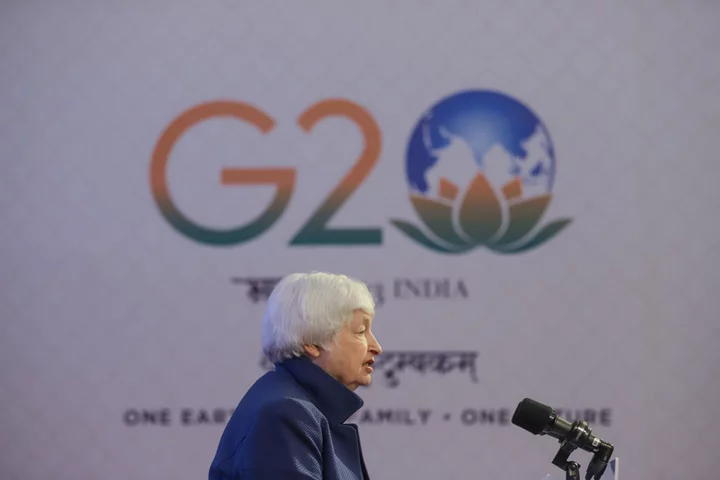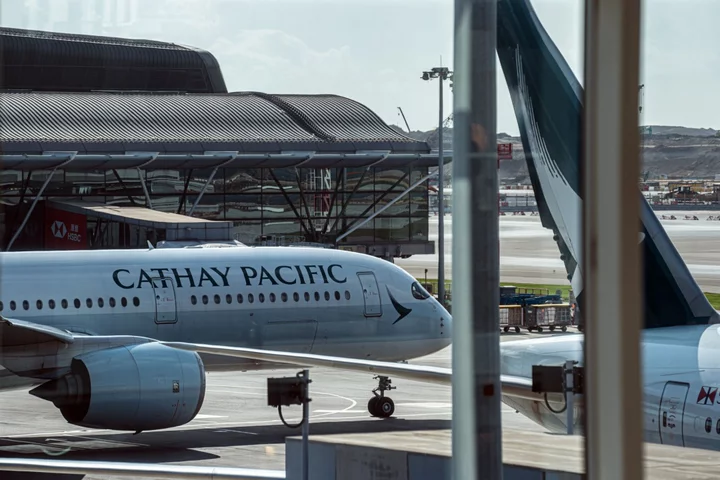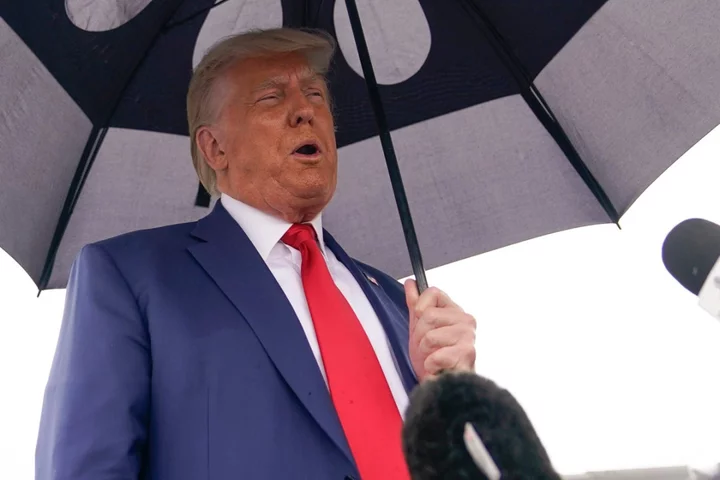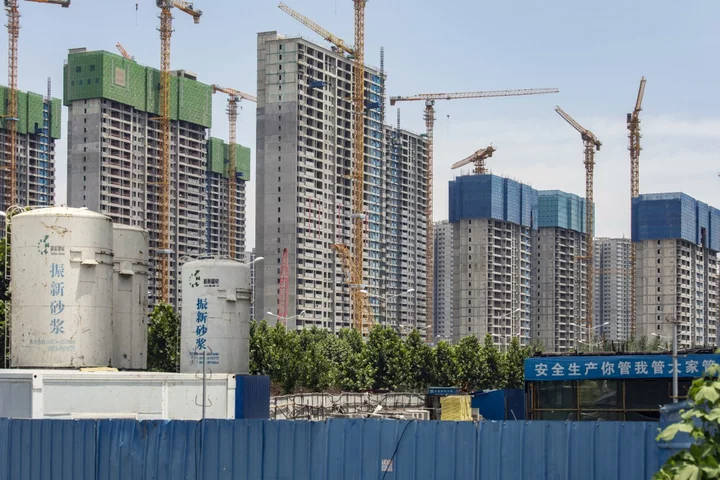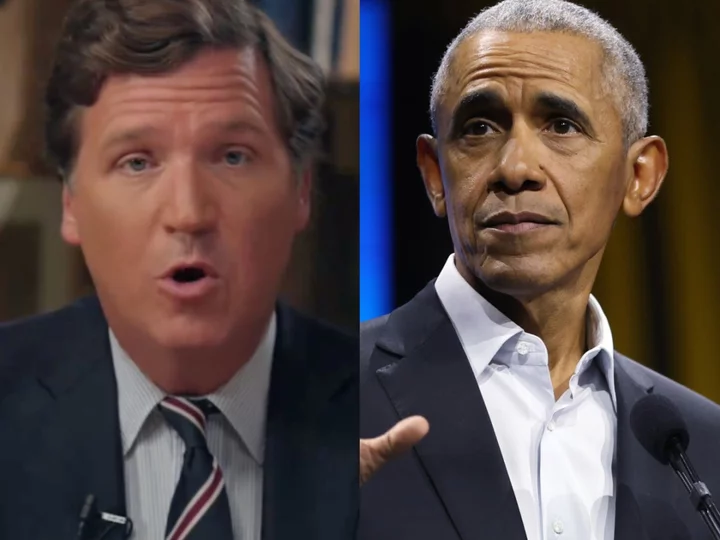Treasury Secretary Janet Yellen said the US should look for ways to further “de-escalate” tensions with China, though it would be premature to eliminate the tariffs imposed on it by the Trump administration.
“It would be useful to look for ways to de-escalate over time,” Yellen told reporters Sunday in Gandhinagar, India, where she’ll meet with counterparts from around the world this week.
The Treasury chief said the US is nearing completion of a four-year review of the tariffs imposed on China, and that she had discussed the issue during her recent trip to Beijing. Any move to lift the measures would stoke a political reaction at home, with Republican presidential candidates seeking even to step up the pressure on China.
“The tariffs were put in place because we had concern with unfair trade practices on China’s side — and our concerns with those practices remains,” she said. “So perhaps over time this is an area where we could make progress, but I would say it’s premature to use this as an area for de-escalation, at least at this time.”
China’s Finance Ministry, in a statement following Yellen’s visit to Beijing, called on the US to take concrete actions to improve ties, including canceling the additional tariffs and refraining from “suppression” measures against Chinese companies.
China’s Growth
Yellen was speaking ahead of a gathering this week of finance ministers and central bank governors from G-20 countries. The Group of Seven will also hold a session in Gandhinagar, with bilateral meetings expected in addition.
Asked about evidence of a slowdown in China’s economic rebound, Yellen noted that it was a topic that also came up during her Beijing visit.
“China is a very substantial importer from many countries around the world, so when Chinese growth slows, it has a impact on many countries — and we are seeing that,” she said.
She said she discussed with officials in Beijing how they plan to address weakness in their economy.
“I think they certainly are anxious, at a minimum, to communicate that the business environment in China is open and friendly,” she said.
Yellen also repeated her view that US actions to impose export controls and investment restrictions on China were driven by national security considerations, and not aimed at severing ties with the world’s second-largest economy.
“There are many areas in which we have trade and investment that are completely uncontroversial and beneficial to both sides,” she said.
She raised the Biden administration’s policy of “friend-shoring,” an effort to reshape global supply chains to reduce over-reliance on China. She called India an “indispensable partner” on that front. When she departs India on Tuesday, she’ll travel to Vietnam, another friend-shoring target for the US.
China’s premier, Li Qiang, has blasted the US and its allies for risking a fragmentation of the global economy with moves to diversify away from China.
“The invisible barriers put up by some people in recent years are becoming widespread and pushing the world into fragmentation and even confrontation,” Li said at a forum in Tianjin, China, last month. “We should oppose the politicization of economic issues and work together to keep global industrial and supply chains stable, smooth and secure.”
--With assistance from Ruchi Bhatia and Erica Yokoyama.
(Updates with additional Yellen comments and context, starting in third paragraph.)

